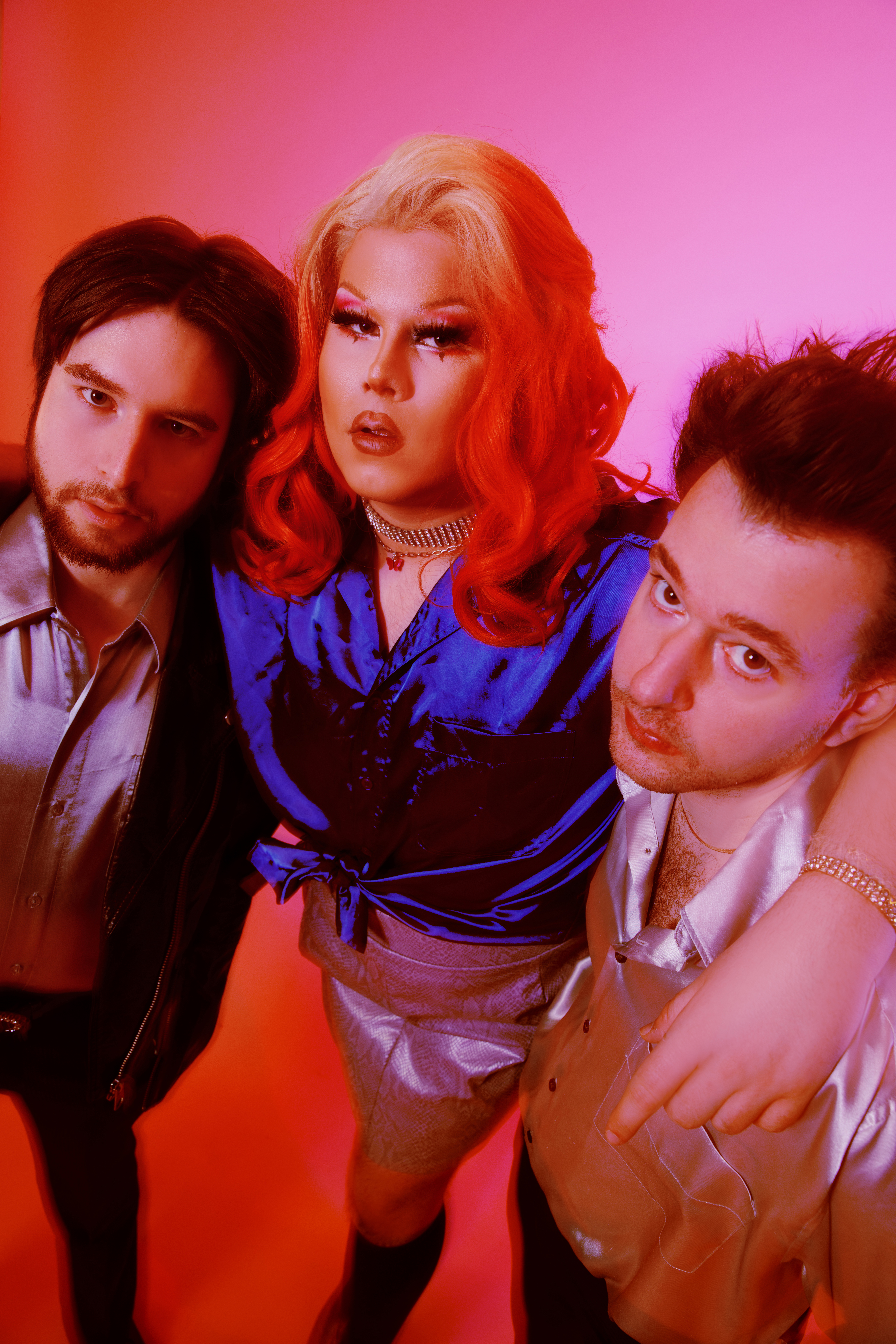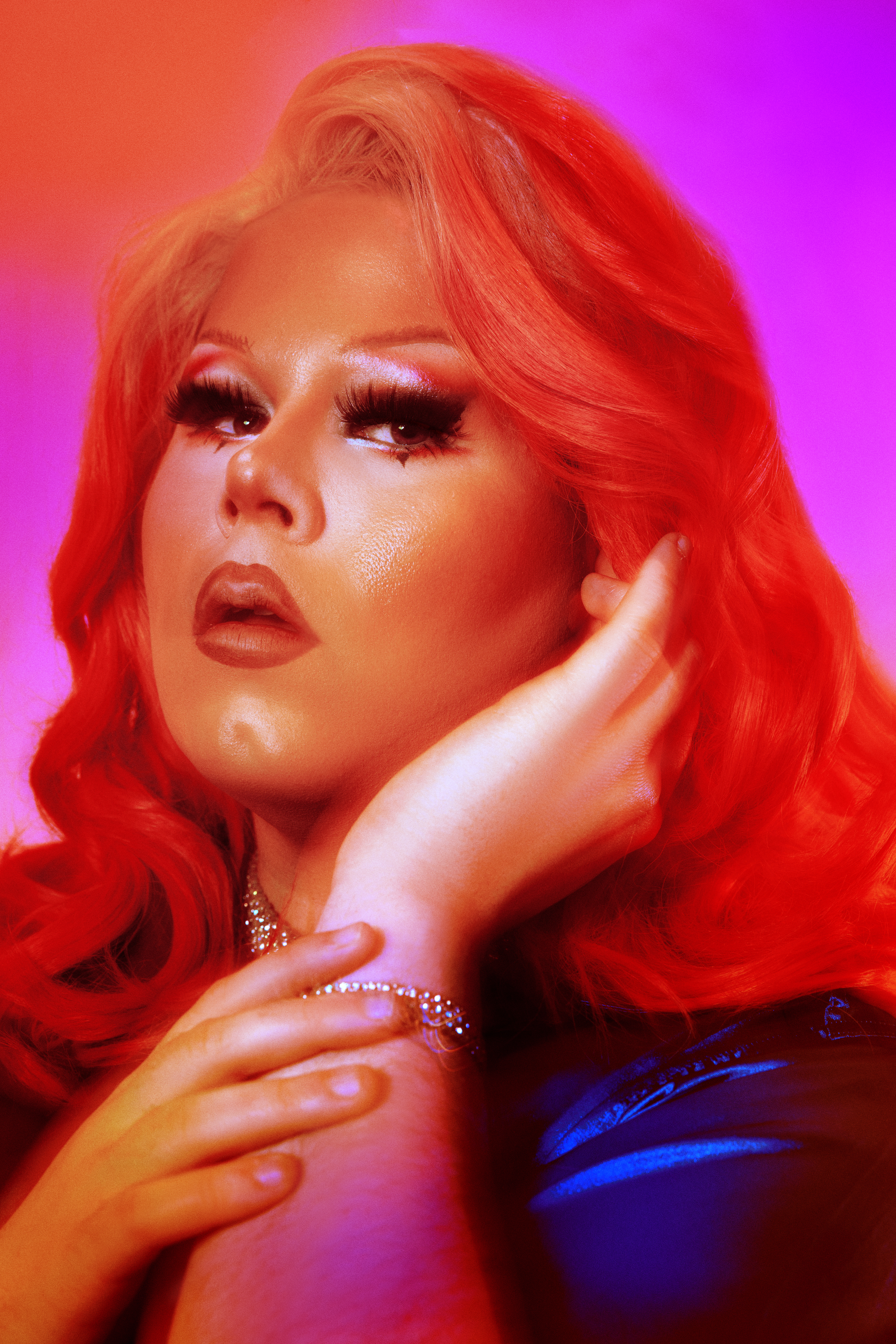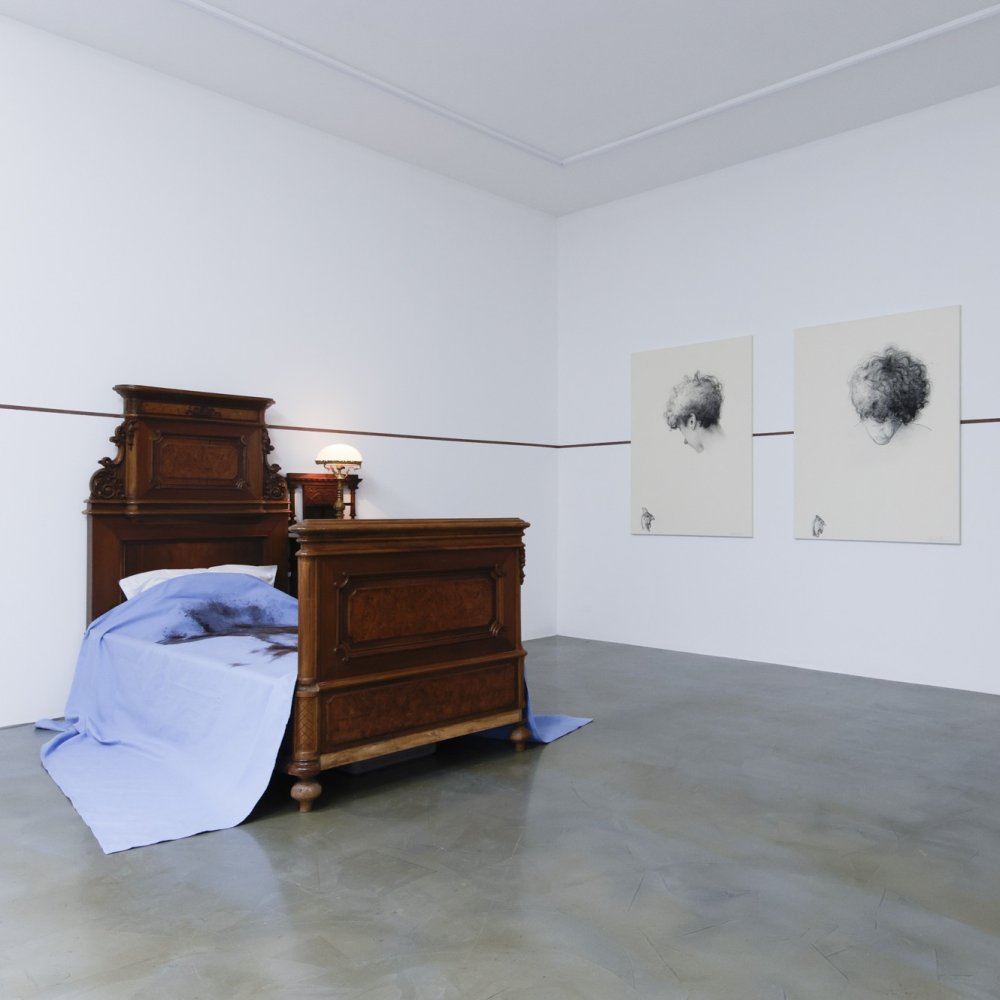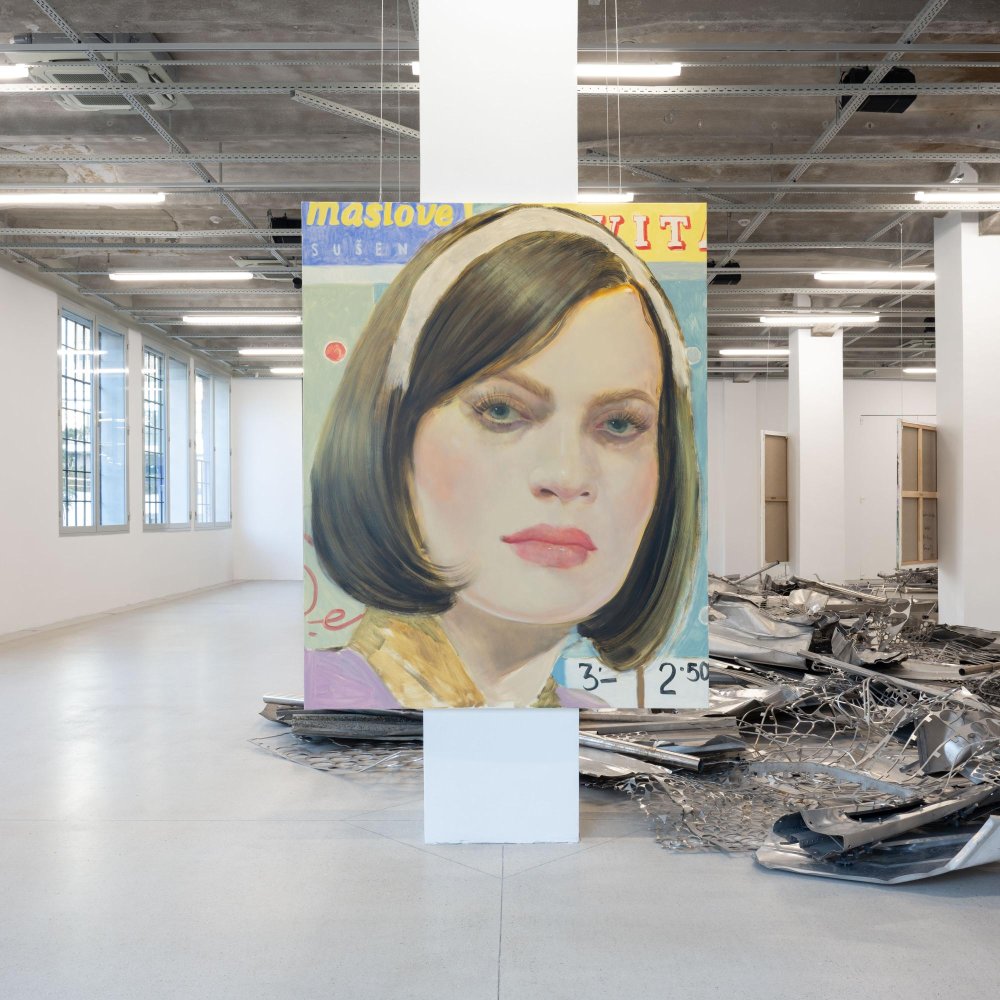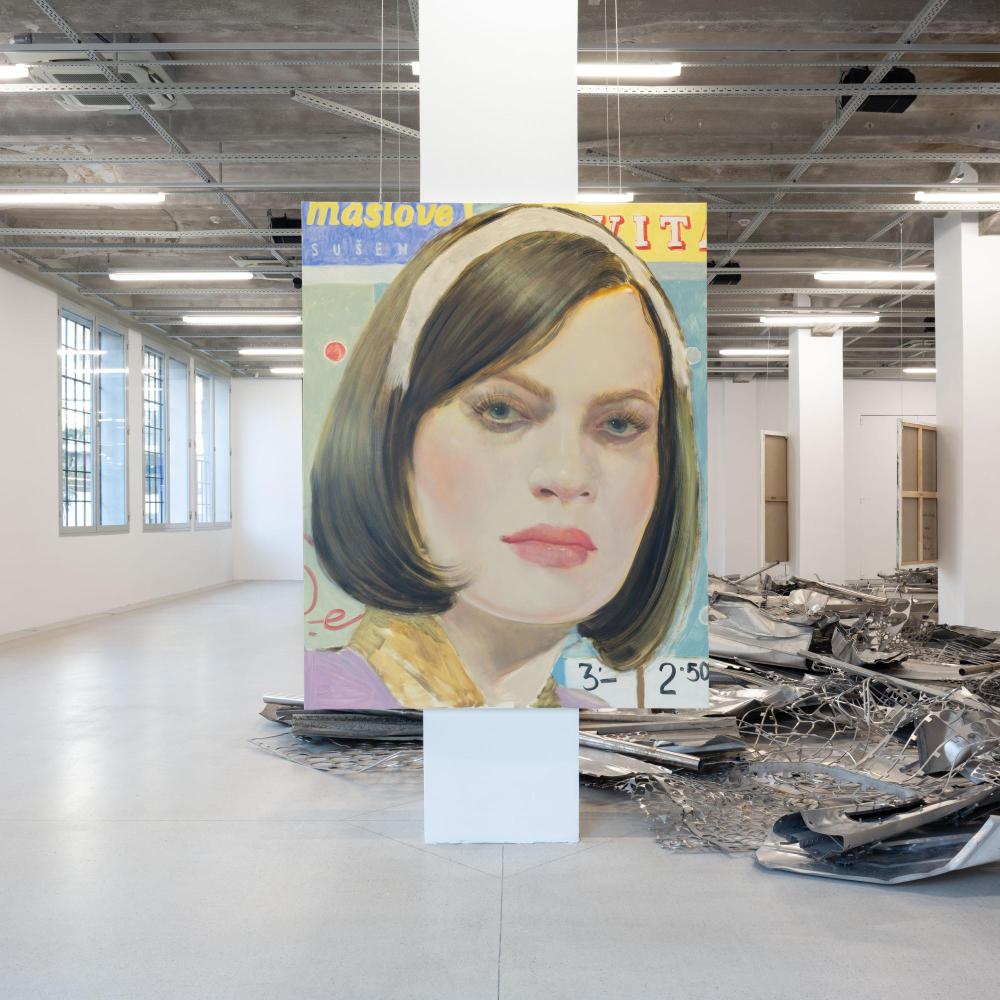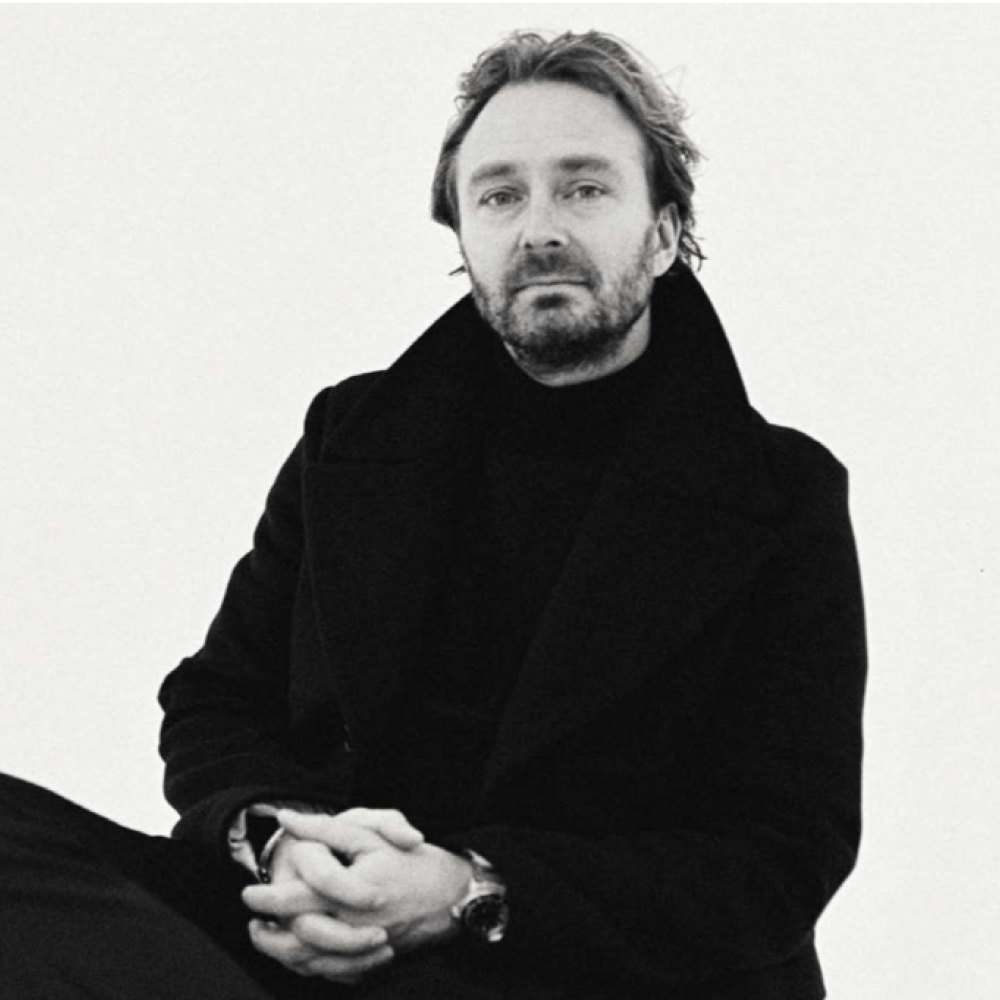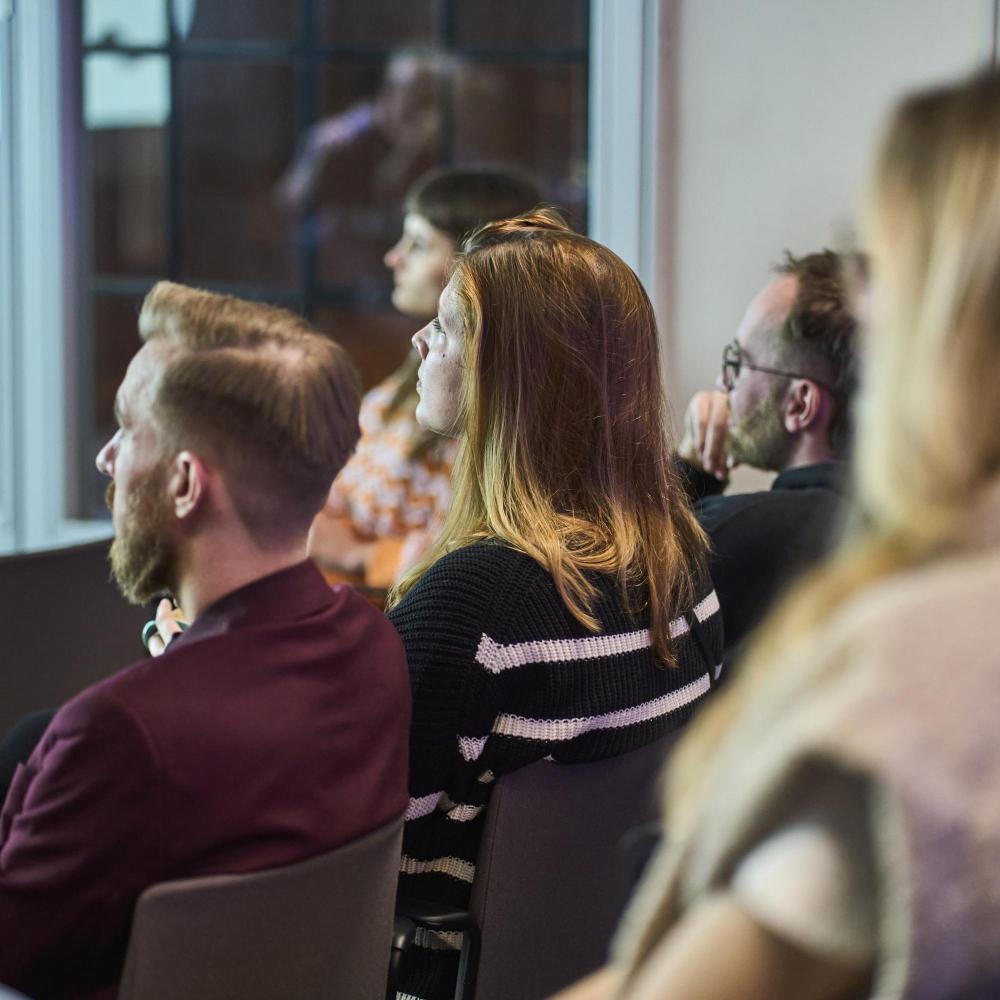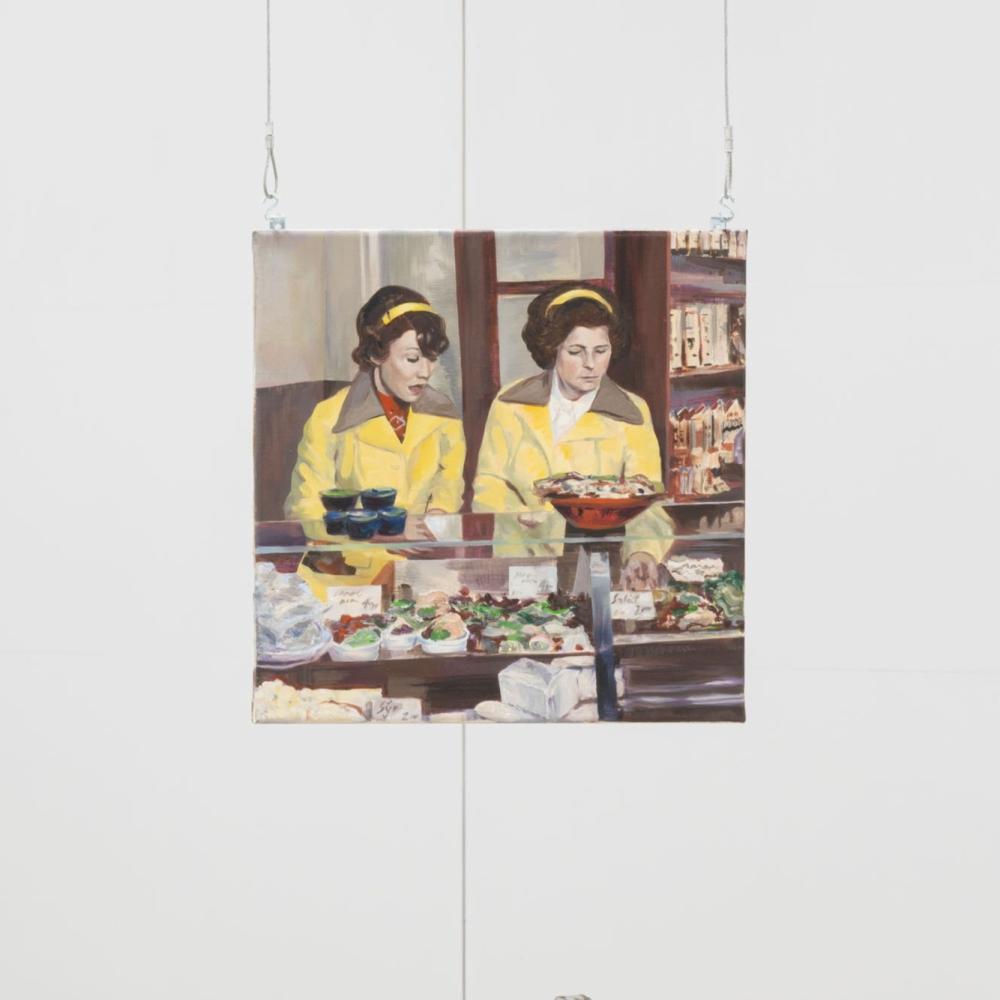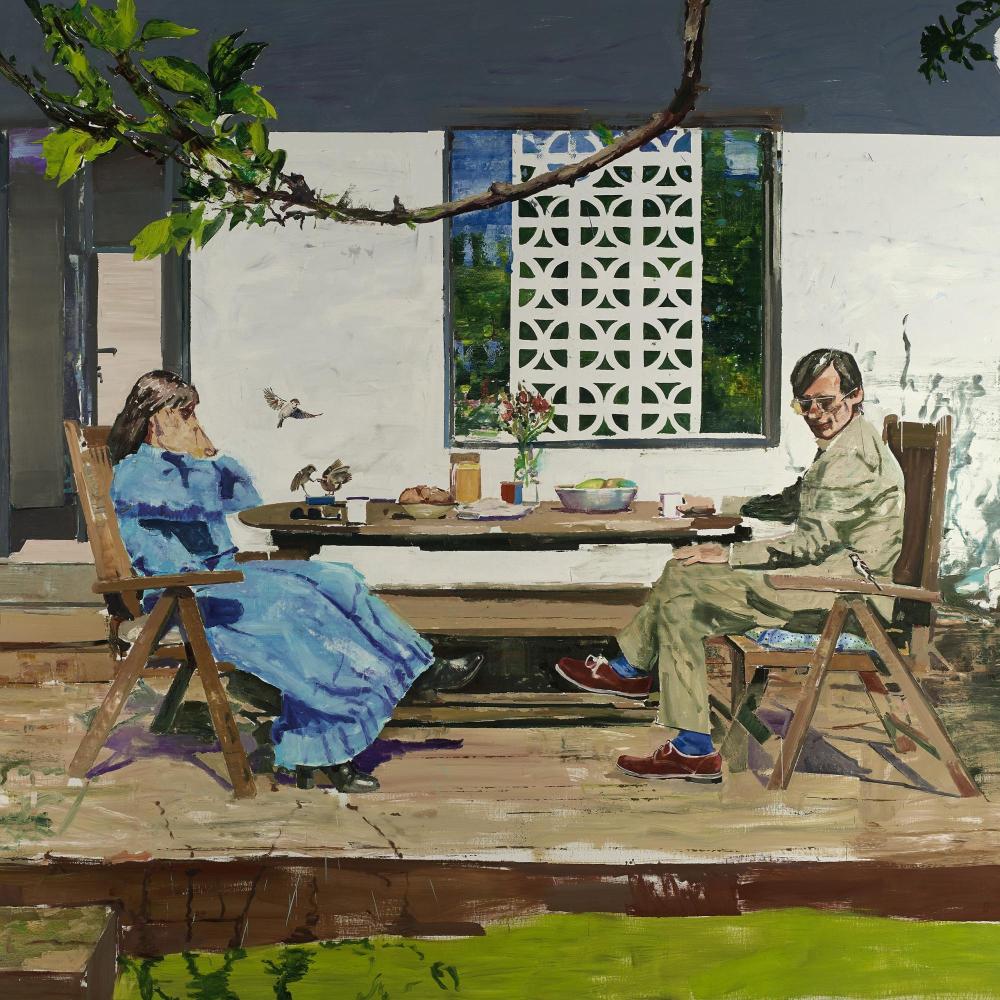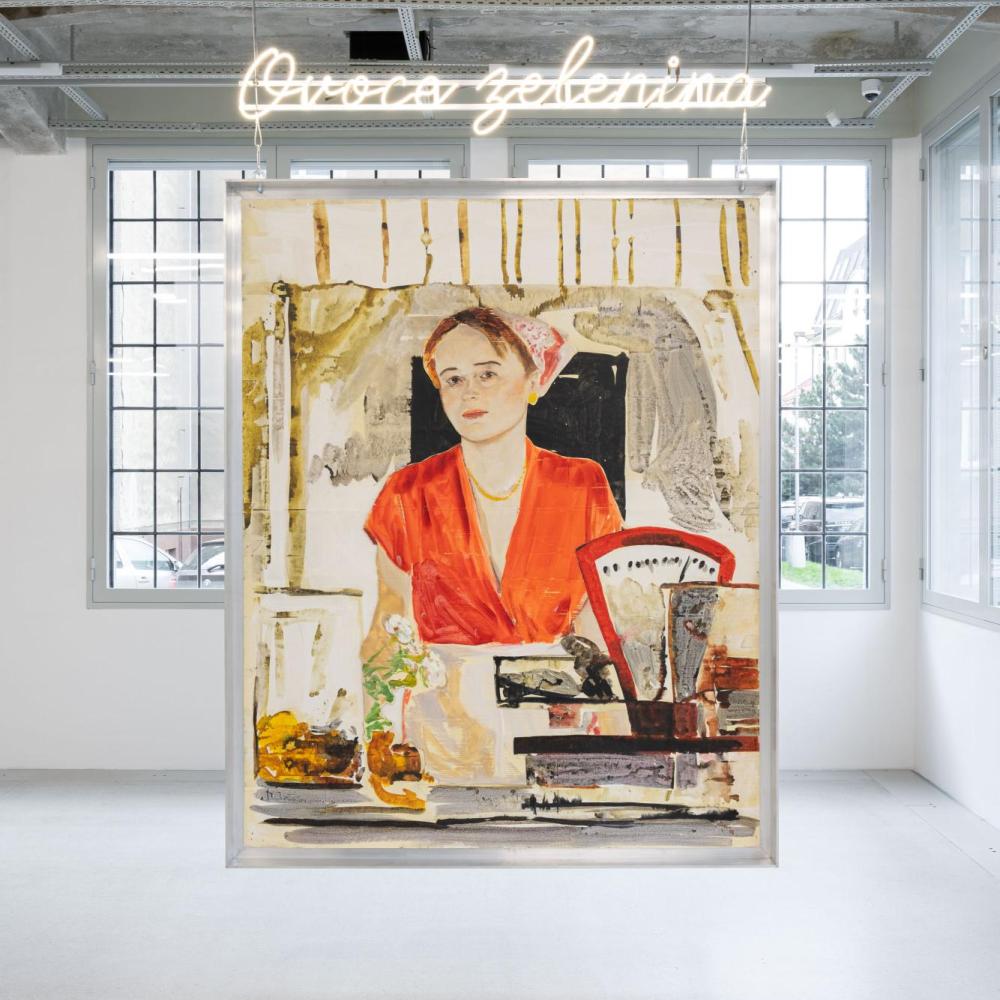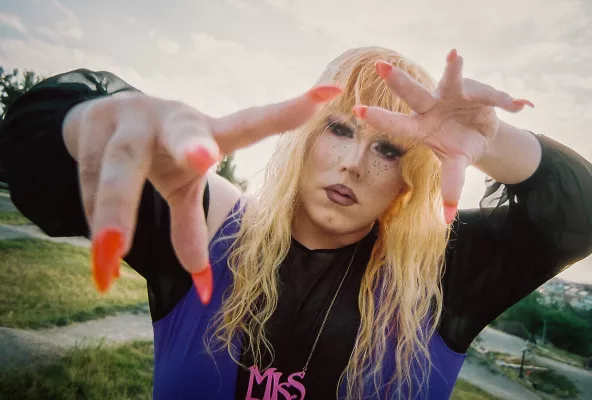
Miss Petty is a Czech drag queen, musical artist and performer. He started drag in 2018 and one of his first major performances took place at the Bushwig International Drag Festival in Berlin. He also organized a drag show on the main stage of the Prague Pride festival or performed together with other queens at the Prague concert of Charli XCX. Miss Petty was led to original music by a situation related to coronavirus. She is almost the only Czech drag queen who has moved from lipsyncs to her own songs, combining current pop trends with clever, self-ironic lyrics, all influenced by drag aesthetics, body positivity and the idea that self-confidence can be for everyone, regardless of age, weight or sexuality.
Save the date: Miss Petty live in the Telegraph on January 25
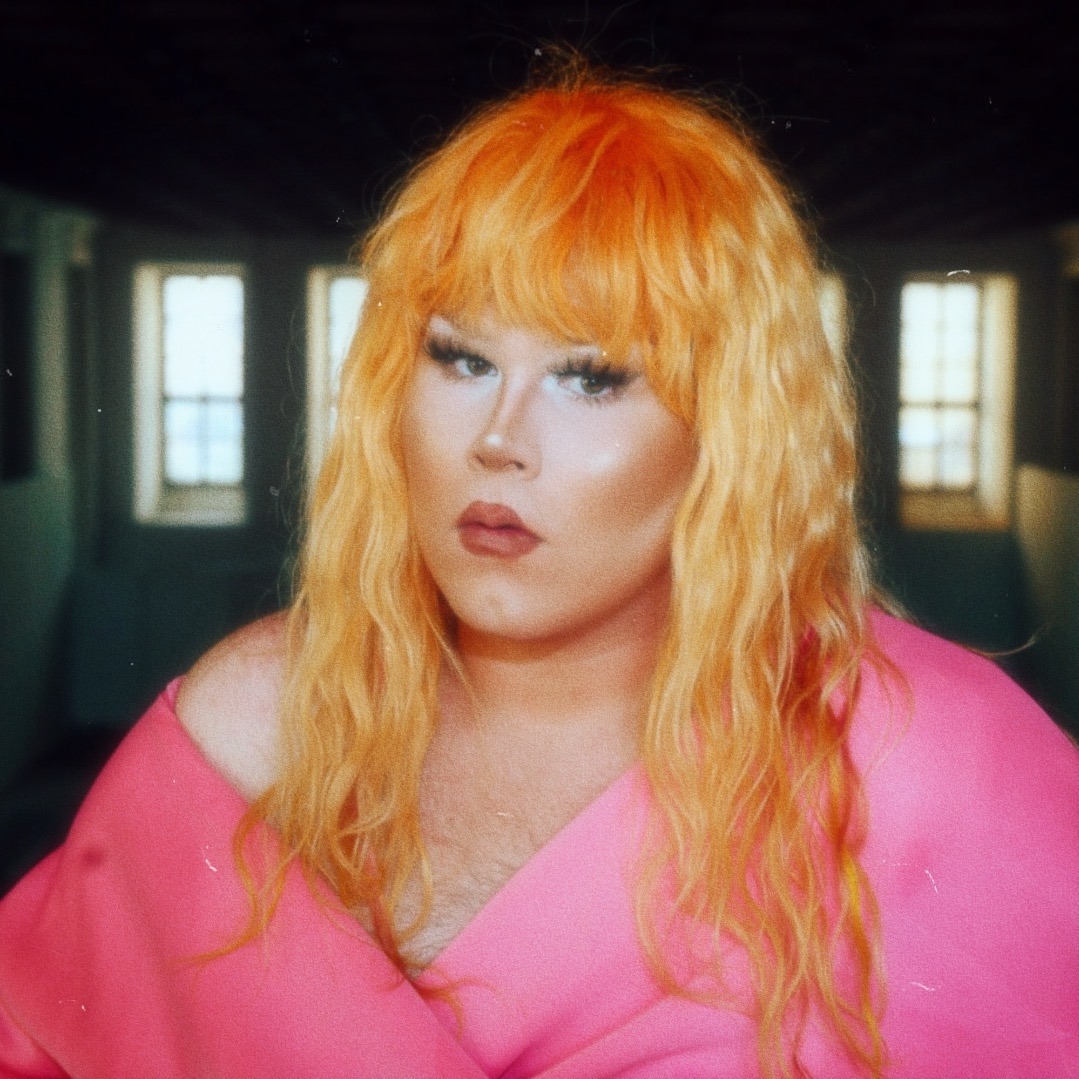
You've been on the scene since 2018, but would you tell us where your work has its roots? How did you discover the drag queen in you?
I've loved music since I was a kid, so I started by making songs. As a kid, I would sometimes dress up in my mom's clothes or wear a t-shirt on my head as a wig, but I guess that's normal for gay guys growing up. Then in 2018, I realized that being a drag queen was something I would enjoy doing. Drag brings together a lot of things that I enjoy and that I'm interested in. What I enjoy about it is the combination of music, fashion and make up. I confidently told myself that it was something I would be good at and something I would be good at. Then I gradually realized that drag and lipsyncing to other people's songs wasn't enough for me and it was important for me that the music was original. That's what I got into on my first lockdown.
How do you explain being the first drag artist in the Czech Republic to write music?
It's not like every drag queen makes music. There certainly aren't many, but artist RuPaul, for example, launched his career with his single Supermodel. Then too, drag superstar from Brazil Pabllo Vittar is a musician. Sometimes even queens who are not related to it do it just to have a song because they know it's good for promotion and creating an image about them. I can communicate much better with the audience through music and I can tell them who I am, what my point of view is and what I do. Since I've combined drag with music, I can connect with people much better.
When you're composing in English, don't you limit yourself to audiences from English and other language speaking countries?
I do, but that's conscious for me. I have no ambition to compete with foreign competition. Drag is on a completely different level abroad. I would have a thousand times harder time there. And I wouldn't feel like I was doing something for my community here in the Czech Republic. There are a few queer artists here, but their work doesn't touch on the subject. For example, Jan Bendig doesn't address it either, even though he is openly gay, he doesn't reflect it in his work. I'm not an active listener of Aneta Langer, but she doesn't open up the topic either, if I'm not mistaken. I certainly don't blame them. Everyone is finding their own way in this, but there's a lack of someone in pop culture who isn't afraid to speak out. It's certainly nothing against them. Anyway, that's why I also like to sing in Czech, because I want to reach the Czech audience with my lyrics. For example, Lil Nas X makes music for queer people who want to hear about it. Why not be a similar example here in the Czech Republic.
After the Czechoslovakia's Got Talent competition you became quite visible and you are probably the most famous drag queen in our country. Now that you have reached a certain level, won't you have ambitions to break through abroad?
I don't feel that way at the moment. I haven't thought about it too much yet, but I'm definitely not at that point yet.
You've tried to smuggle alternative culture into the popular scene. What kind of response have you had? It's one thing to have a gig at Stalin, for example, where there are people in attendance who cheer you on, but how do others react?
On the set of Talent, everything was great. The judges were sympathetic and understood a certain amount of hyperbole. They liked my performance. I only got negative feedback after the show aired, in the form of comments, but I expected that. For example, comments like Fuck the faggot... I also encountered opinions that the jury had to let a gay man into the next round because it was mandatory to promote homosexuality. And more and more comments. But I also received a lot of support from people who were encountering this culture and this type of art for the first time. The negative comments didn't touch me as much. The positive ones made me very happy.
How do you alternate between your role as David and Miss Petty? Is it easy to switch from one to the other?
It's hard to say. I feel most comfortable in the character of Miss Petty when I'm on stage. That's where I feel like a true diva. Drag gives me maybe ten percent extra confidence, but I'm not a completely different person. When I'm in costume, I feel good about being the center of attention. But sometimes I don't want the attention, and that makes me feel weird.
What kind of team do you have around you? Does anyone help you with promotion, clothing, or other things related to your career?
Unfortunately I don't have an established team yet, but I have a lot of great people around me who are trying to help me. I do my own promotion, but I have people around me who try to support me and believe I'm doing good things. I would like to collaborate with other designers, but unfortunately I don't have a big budget for that and I don't want to write people to do work for me for free. I'm more happy to hear from someone who wants to collaborate themselves. The collaboration with Princess Tiramisu started with me modeling for her photo shoot and her lending me dresses for the shows in return. My friend Oldřich Bystřický creates the simpler costumes for me.
Is it possible to make a living in this field in the Czech Republic?
You can make a living in drag in New York, Los Angeles... maybe in Paris, but you can't do it here. However, I am happy to make original music. It's finally moving me forward financially, but I probably wouldn't want to do it full time. It would quite possibly take some of the fun out of it. The freedom. I don't want it to be just a job. By performing now, I'm able to pay for the expenses of creating and the hours in the studio to a certain extent.
The Telegraph will also feature Litterbin. How did you come together?
I discovered Litterbin, or Jonah Klos, through his brother Stepan, who did my make-up for the Plastics video, and approached him about remixing the song Hush Hush. The collaboration is a great fit. I'm glad I found him. I feel a lot better when I'm performing when I'm there with someone who has my back. And he also basically does half the show by obviously enjoying himself on stage as much as I do. I can't even imagine performing without him. My friendship with Jonah deepened when we did a song together with Toyota Vangelis called It Can't Be Any Other Way.
By Mira Macík, Tereza Holoubková, Šárka Nováková
Photo: Štěpán Svoboda, Michal Hančovský, Iurri Ladutko
